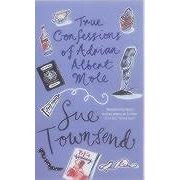Kira-Kira by Cynthia Kadohata
Grade 6-8--Katie's first word is "kira-kira," the Japanese word for "glittering," and she uses it to describe everything she likes. It was taught to her by her older sister, Lynn, whom Katie worships. Both girls have trouble adjusting when their parents move the family from Iowa to a small town in rural Georgia, where they are among only 31 Japanese-Americans. They seldom see their parents, who have grueling jobs in chicken-processing plants. Then Lynn becomes deathly ill, and Katie is often left to care for her, a difficult and emotionally devastating job. When her sister dies of lymphoma, Katie searches for ways to live up to her legacy and to fulfill the dreams she never had a chance to attain.
Katie's parents can barely afford to pay their daughter's medical bills, yet they refuse to join the growing movement to unionize until after Lynn's death. All of the characters are believable and well developed, especially Katie, who acts as a careful observer of everything that happens in her family, even though there is a lot she doesn't understand. Especially heartbreaking are the weeks leading up to Lynn's death, when Katie is exhausted and frustrated by the demands of her sister's illness, yet willing to do anything to make her happy.
Wednesday, May 28, 2008
Reading - Kira-Kira
Monday, May 19, 2008
Reading - The True Confessions of Adrian Albert Mole, Margaret Hilda Roberts and Susan Lilian Townsend
The True Confessions of Adrian Mole, Margaret Hilda Roberts and Susan Lilian Townsend by Sue Townsend
This book is written in diary form about Adrian Mole, Margaret Hilda Roberts and Susan Lilian Townsend.
Adrian Albert Mole was the editor and main contributor to the Neil Armstrong Comprehensive School magazine.
Margaret Hilda Roberts 's diary is believed to have been written in the nineteen thirties and was discovered between the pages of the Be-Ro Cookbook for girls at a car boot sale in Grantham on a Bank Holiday Monday in 1988.
Susan Lilian Townsend enjoyed notoriety at one time but has sunk into obscurity since her involvement in the 'five dwarves in a bed' scandal in 1989 for which she received a suspended prison sentence of two years.
Wednesday, May 14, 2008
Reading - Edward Trencom's Nose
Edward Trencom's Nose by Giles Milton
Edward Trencom, the owner and operator of London's pre-eminent cheese emporium, holds the title Life President of the Most Worshipful Company of Cheese Connoisseurs. During a tour group's visit to his shop, a mysterious Greek gentleman accosts Edward and prompts him to explore his family history.
His world is turned upside down when he stumbles across a crate of family papers. To his horror, Edward discovers that nine previous generations of his family have come to sticky ends because of their noses. When he investigates further, Edward finds himself caught up in a Byzantine riddle to which there is no obvious answer. Like his ancestors, he is hunted down by rival forces whose identity and purpose remain a total mystery. Trapped between the made, the bad and a cheese to die for, Edward Trencom's nose must make a choice - and for the last nine generations it has made the catastrophically wrong decision.
Wednesday, May 07, 2008
Reading - The Almost Moon
The Almost Moon by Alice Sebold
Helen Knightly is an artist's model near 50. She murders her mother Clair - who has dementia - after Clair loses control of her bowels. Herself is the mother of two daughters and an art class model old enough to be the mother of the students who sketch her nude figure, is the dutiful but resentful caretaker for her senile 88-year-old mother, Clair. During the next 24 hours, Helen Knightly feels liberated and caged. She succumbs to sexual and subjectively deviant impulses others might try to suppress. But she still has the presence of mind to annotate her behavior in ways which show she's no dummy. She washes and drags her mother's body to the basement. She has sex with the 30-ish son of her best friend, who's all sensuality and no substance. She thinks about Clair, her sarcastic, reclusive, once beautiful and now dead mother.
Helen recalls her dead father (loving and gentle but also mentally ill, who liked to carve wood into whimsical shapes). She thinks about her ex-husband Jake (supportive present-day accomplice), her two daughters (apparently normal), her art teacher pal (for whom she poses in classes as a model) and her neighbors (generically nosy and friendly). She thinks about her best friend Natalie (unhappy but in love with a construction worker) and Natalie's son Hamish, Helen's aforementioned one-night paramour.
Saturday, May 03, 2008
Reading - My Sister's Keeper
My Sister's Keeper by Jodi Picoult
Anna was genetically engineered to be a perfect match for her cancer-ridden older sister. Since birth, the 13-year-old has donated platelets, blood, her umbilical cord, and bone marrow as part of her family's struggle to lengthen Kate's life. Anna is now being considered as a kidney donor in a last-ditch attempt to save her 16-year-old sister.
Anna has hired a lawyer to represent her in a medical emancipation suit to allow her to have control over her own body. Picoult skillfully relates the ensuing drama from the points of view of the parents; Anna; Cambell, the self-absorbed lawyer; Julia, the court-appointed guardian ad litem; and Jesse, the troubled oldest child in the family. Sara, the children's mother, as well developed and three-dimensional as previous Picoult protagonists. Her devotion to Kate is understandable, but her complete lack of sympathy for Anna's predicament until the trial does not ring true, nor can we buy that Sara would dust off her law degree and represent herself in such a complicated case.